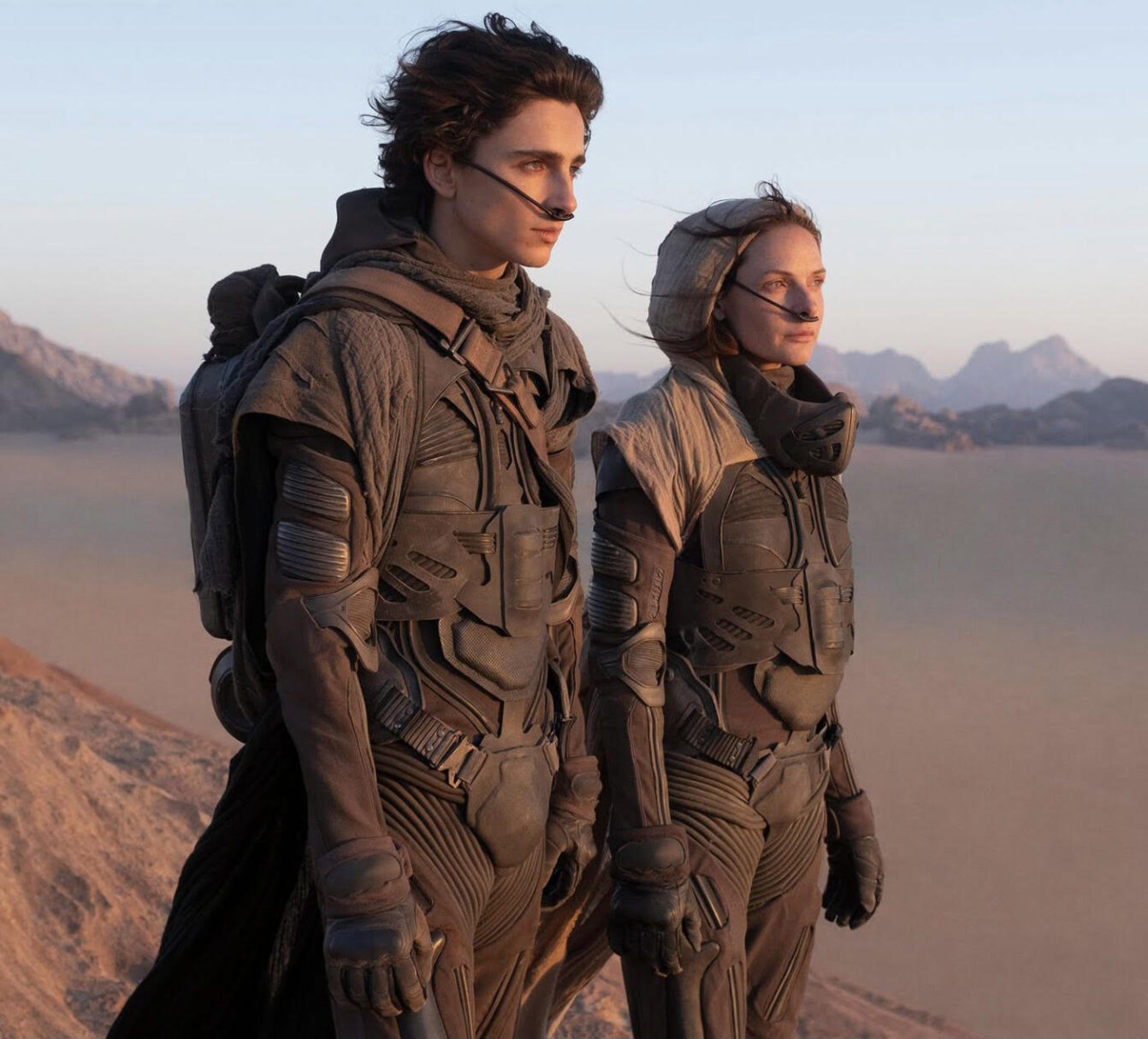“Dune” Is Visually Stunning, But Lacks Depth

by Peyton Blumenfeld ‘22

Timothée Chalamet and Rebecca Ferguson in Denis Villeneuve’s Dune.
Denis Villeneuve’s attempt at directing the deemed unfilmable novel, Dune, proves that some story aspects are meant to be left for the imagination.
Frank Herbert’s 1965 landmark science fiction novel of the same name is set in the distant future, when noble houses rule over different planets in a feudalist society. The story focuses on Paul Atreides (played by Timothée Chalamet), son of a Duke, who leads a group of oppressed warriors to revolt against the galactic emperor in order to free their planet from the emperor’s rule. Villeneuve’s Dune however, is part one of a saga, so it just scratches the surface of the story by Herbert. Call it an introduction if you will, to the immersive planet of Arrakis.
Dune is essentially a geo-political allegory to the Middle-East. A planet under imperialist rule, enriched with a powerful natural element high in demand … sound familiar? What makes the planet Arrakis, or Dune, so valuable is the special spice called “melange” that can only be found there. This spice is the basis of the story’s plot. It’s a drug that can extend life, cause prescience, and allow safe space travel. Basically, it’s a really big deal, and House Atreides is put in charge of it.
Going into the movie, it would be helpful to be at least familiar with the source material to be able to understand half of the conversations and actions that are going on. The film keeps the novel’s terminology to a minimum, yet without it, one may get lost in attempting to comprehend the importance of character’s status and powers. The film’s main priority is world-building, which makes sense—it is called Dune after all. However, the two and a half hour movie can seem quite slow when it’s mere build-up for part two. With such an extensive novel to adapt, fitting all the important details in it seems hopeless.
What may have made the film Dune a little more comprehensible is if it would have incorporated the inner monologue and thoughts the characters have in the book. Almost every page includes italicized text that describes the characters’ emotions, thoughts, and fears. The movie abandons this key element, leaving the film devoid of emotional heft.
Despite the apparent issues of Dune, it is undeniable that this was made to be seen on the big screen. Each shot is filmed with incredible detail, truly engrossing viewers in the planet’s geography. The composer of the film, Hans Zimmer, creates a magnificent score, and it is out of this world, pun intended. The powerful music shakes the theater, bringing what’s visually on screen to life. The combination of captivating visual effects and intense score make for a heck of an experience … but not for a great film.
Grade: C+